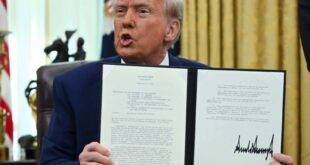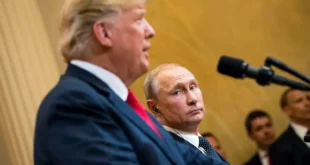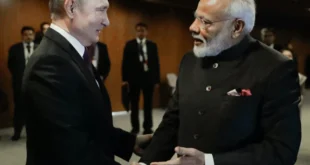Several developments in recent months have raised questions about whether the Middle East is undergoing a sea change in patterns of cooperation and conflict among states in the region and with outside powers, notes “The National Interest”.
Chief among these was the visit of Chinese president Xi Jinping to Saudi Arabia and his meetings there with Arab leaders (photo). Especially noticed was the Joint Statement by China and the Gulf Cooperation Council (GCC) states that many interpreted as evidence of China taking the side of the United Arab Emirates in its dispute with Iran over the possession of some small islands in the Persian Gulf.
Meanwhile, an apparent deepening of ties between Russia and Iran has featured a partial reversal of the normal flow of arms in Russia’s relationships.
Israel is installing its most extreme right-wing government ever, raising questions about the future of Israel’s upgraded relations with some Arab states, but without visible effects on those relations so far.
And a soccer tournament in Qatar got the attention not only of sports fans but of observers of the political sideshow and its possible implications regarding relations between Gulf Arab states and others. The strong expressions at the World Cup tournament of solidarity with the Palestinians provided recent evidence of this.
Part of the backdrop for all the above is the much-invoked but never really accomplished U.S. “pivot” of attention away from the Middle East and toward East Asia.
Another part is the moribund state of diplomacy concerning the restoration of the Joint Comprehensive Plan of Action (JCPOA), otherwise known as the Iran nuclear deal.
Short-term considerations, events outside the region, and sometimes domestic political considerations have been playing at least as much of a role in news coming out of the Middle East as anything that could be described as a fundamental revision of the region’s geopolitics.
Xi’s visit to Saudi Arabia was part of an effort by China to deepen relations with the Gulf Arabs. That Chinese-GCC statement was, on the face of it, mild and impartial regarding the Persian Gulf islands, saying only that the dispute should be settled through bilateral negotiations in accordance with international law.
Iran objected to the statement because, like many other countries in control of a disputed territory, it claims as a matter of propaganda that there is no dispute and the islands are rightfully Iran’s.
There is every reason to believe that China still wants extensive relations with both sides of the Persian Gulf. Iran has been a major supplier of oil to China and importer of manufactured Chinese goods. It was just last year that China and Iran signed a twenty-five-year “strategic agreement.”
The overall geopolitics of the Middle East have not changed appreciably during the last several years and are not poised to change fundamentally in the months ahead. The regional picture features rivalries that are partly based on ethnic and religious divisions but also reflect the sometimes destabilizing ambitions of individual leaders
Then there is the unresolved Israeli-Palestinian conflict. Despite the best Israeli efforts to push that conflict out of the consciousness of the world (with the cooperation, suitably incentivized, of some of the Gulf Arab regimes), the popular resonance of that issue continues.
Russia, despite the sanctions and opprobrium associated with its special military operation in Ukraine, continues to demonstrate proficiency in working all sides of Middle Eastern conflicts, from Israel to Iran and much that is in between.
Xi’s recent trip is part of China’s effort to emulate the Russians with an all-azimuths foreign policy in the Middle East. Turkey is another active outside power, although its policy is constrained by not being entirely on the outside and having special concerns about Kurdish activity in Syria and Iraq, as well as by ideological considerations related to the ruling party’s connections to the Muslim Brotherhood.
The United States has been, and continues to be, probably the most self-constrained outside power in its dealings with the region. The self-constraint is related to domestic politics and the legacy of past conflicts, and is manifested especially in unqualified support to Israel and unqualified hostility toward Iran.
One of those lessons is that to broaden U.S. influence, the United States should emulate the Russians (and now the Chinese) in doing business with everyone rather than viewing the Middle East as rigidly divided into friends and foes.
 Geostrategic Media Political Commentary, Analysis, Security, Defense
Geostrategic Media Political Commentary, Analysis, Security, Defense





